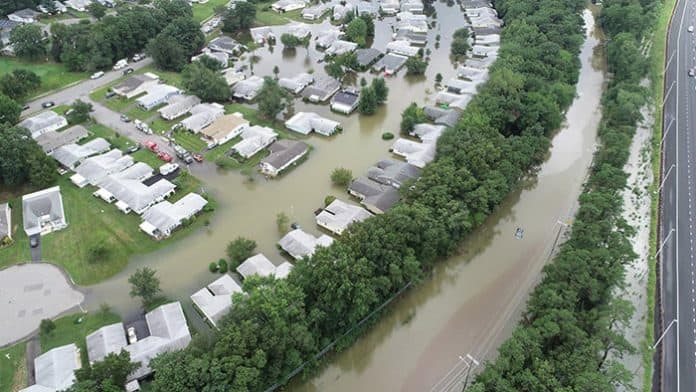
NEWARK – New Jersey officials are urging residents to be wary of price gouging and consumer fraud following the recent flooding that has affected local communities.
Communities in Ocean, Monmouth, Bergen, Essex, and Passaic counties have been heavily affected by last week’s torrential rains, using flood damage in some areas. The Office of the Attorney General and the Division of Consumer Affairs are reminding residents to practice caution when looking to do home repair or improvement projects.
“The majority of merchants and businesses in New Jersey would never take advantage of consumers during a State of Emergency, but we’re asking residents to immediately report anyone seeking to illegally profit from this natural disaster,” said Attorney General Grewal. “The state’s price gouging laws and other consumer protections will be strictly enforced to protect residents from being victimized at a time when they’re at their most vulnerable.”
Governor Murphy declared a state of emergency on August 14 in five New Jersey counties, including Ocean County. Excessive price increases within 30 days after a declared state of emergency are forbidden by state price gouging law, according to the Attorney General.
“We will not allow anyone to unlawfully increase prices for food, gas, hotel rooms, generators, or other necessary items or services, or otherwise take financial advantage of flood victims as they struggle to recover,” said Paul R. Rodríguez, Acting Director of the Division of Consumer Affairs. “The Division also stands ready to swiftly enforce the laws that protect consumers against repair scams, charity scams, and other disaster-related fraud. In times of emergency, we should all be looking for ways to help those in need, not take advantage of them.”
The Office of the Attorney General provides these tips for protecting yourself from consumer fraud:
- Shop around and obtain at least three written estimates. Ask the contractors if they have liability insurance (as required by law) and whether they will be using subcontractors on the project.
- Call Consumer Affairs’ Consumer Service Center to find out if the contractor you are considering is registered or has been the subject of complaints and/or action by the State.
- Be wary if a contractor tells you that he or she needs a large payment before the home repair work can begin, insists that you pay cash, or tells you a written contract is not necessary. Contracts for home improvement projects costing $500 or more must be in writing.
- Avoid contractors that don’t have a fixed location that you can go to, if needed.
- If you hire a contractor, make sure you get names, addresses, phone numbers, license plate numbers and vehicle descriptions for all individuals working on your home. If a problem does occur, this information will help law enforcement locate the contractor.
- Before you let in anyone who claims to have been sent by a utility company to inspect your home, ask for identification.
For more tips on how to avoid flood-related fraud visit the Division’s website. If you believe price gouging or other disaster-related fraud is occurring, contact the Division of Consumer Affairs at 973-504-6240.






